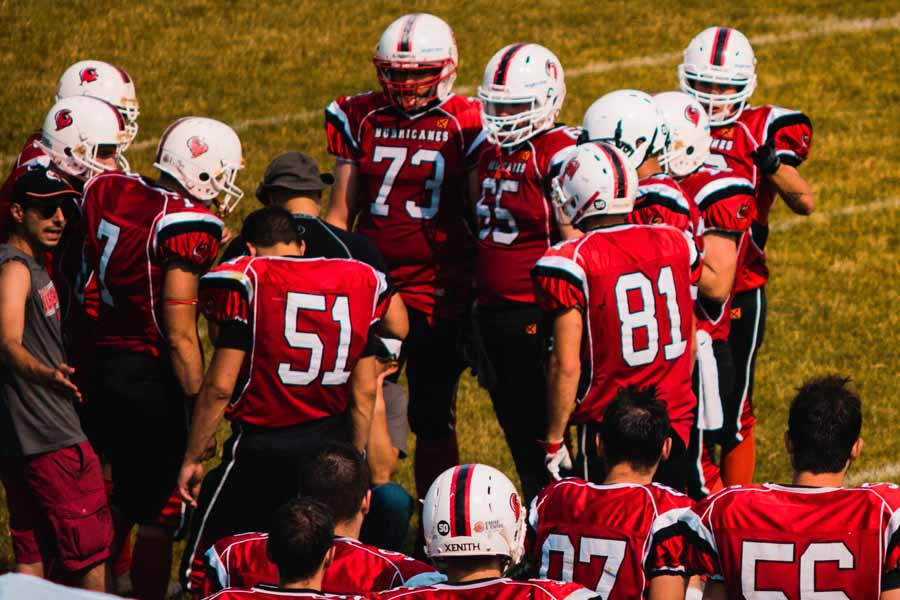JUNIOR COLLEGE ROUTE
If you aren’t getting the scholarship offers that you want or feel you should be getting by the end of your senior season, one of the final options to think about is to attend a Junior College for a year or two. Junior Colleges feed major FBS programs and hundreds of other schools every year with talented players who are able to step into starting positions. You are basically able to re-do the recruiting process once you are enrolled and competing at the Junior College level.
Aaron Rodgers, Deion Branch, Al Harris, Jeremy Shockey, Chris Johnson, Keshawn Johnson, Bryant McKinnie, Chad Ochocinco, Steve Smith, Duane Starks, Javon Walker and Cam Newton are just a few football players who went to Junior College at some point during their college career and went on to find tremendous success in college and the NFL. Many other NCAA teams recruit from Junior College programs as well.
Along with going the JuCo route for a year or two to basically re-do the recruiting process, some prep players must go that route in order to get the required grades and test scores needed before they can enroll in four-year institutions. Junior Colleges are definitely an option to consider if you feel you are a late-bloomer, had an injury or if you fell short academically.
I have worked for several major Division I coaches who put QUALITY attention into finding JuCo players. There are some coaches who specifically want to add one or two JuCo players to their roster each year and will scout them consistently.
Junior College players are important to NCAA programs that may have had many players transfer out, injuries or players who have exited school early for the draft. A team may be too heavy with a high percentage of freshman and incoming freshman on the roster and need a boost of older, more physically-ready players. Other programs may focus on Junior College players because they can’t offer exciting locations or rankings—but they can offer players Division I starting jobs. JuCo players can come in to a program and make an immediate impact, the best ones are highly sought after by many elite FBS coaches.
More importantly, some Junior College players have been through their share of ups and downs and can be a more mature or goal-oriented than 17 or 18-year-old freshmen. JuCo players often appreciate the opportunity to play major college sports and are more disciplined than younger players. For many, this is their second chance and they are often more mature and willing to handle their business without being babysat compared to a player straight out of high school.
Junior Colleges have helped pave the way to an NCAA career for many players, so consider it an option if you feel it’s your best opportunity to lead you to a more competitive school than you are being recruited by as a high school senior. Visit www.NJCAA.org for more information!
Reach out to JuCo coaches in the same ways you would contact NCAA coaches—call, email, send your film, have your prep coaches call.




